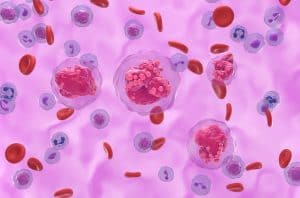
Half of patients have sub-optimal response to statins, research shows
pharmafile | April 16, 2019 | News story | Manufacturing and Production | NHS, NICE, NICE guidelines, cholesterol, health, statins
Around half of patients who are prescribed statins do not see their cholesterol drop to desired levels within two years, according to research published in the journal Heart.
Guidelines from Britain’s cost effectiveness body NICE present a target of 40% reduction in low density lipoprotein cholesterol for patients using statins.
However new research shows 51% of patients had a sub-optimal response after 24 months of treatment
The researchers from the University of Nottingham analysed data from 165,411 patients, with an average age of 62 years old, who were prescribed statins between 1990 and 2016.
In total, 84,609 patients had a sub-optimal response after two years.
Notably, a higher proportion of those patients who recorded a sub-optimal response to stains were prescribed lower potency doses compared to those who recorded an optimal response.
“These findings contribute to the debate on the effectiveness of statin therapy and highlight the need for personalised medicine in lipid management for patients,” the researchers said.
Professor Metin Avkiran, associate medical director at the British Heart Foundation, said: “Statins are an important and proven treatment for lowering cholesterol and reducing the risk of a potentially fatal heart attack or stroke.”
“Although this study suggests that not everyone who is prescribed statins manages to reduce their cholesterol sufficiently, it doesn’t explain why.”
“It may be that these people have been prescribed low dose or low potency statins, that they are not taking the medication as prescribed, or that they are not responding well to the type of statins that they have been prescribed.”
“If you have been prescribed statins you should continue to take them regularly, as prescribed. If you have any concerns you should discuss your medication with your GP.”
Professor Helen Stokes-Lampard, chairwoman of the Royal College of GPs, said: “When we prescribe medication, we have to rely on patients to make sure that they take it, both at the recommended dose and for the duration of time that we think will benefit them most.
“There is a substantial body of research showing that statins are safe and effective drugs for most people, and can reduce the risk of heart attacks and stroke, when prescribed appropriately – but controversy remains around their widespread use and their potential side-effects.
Louis Goss
Related Content

NICE recommends migraine treatment for NHS use
The National Institute for Health and Care Excellence (NICE) has shared draft guidance recommending AbbVie’s …

GSK’s Jemperli recommended by NICE for endometrial cancer treatment
GSK has announced that the National Institute for Health and Care Excellence (NICE) has recommended …

NICE recommends SC treatment of AbbVie’s Tepkinly for patients with DLBCL
AbbVie has announced that the National Institute for Health and Care Excellence (NICE) has recommended …








